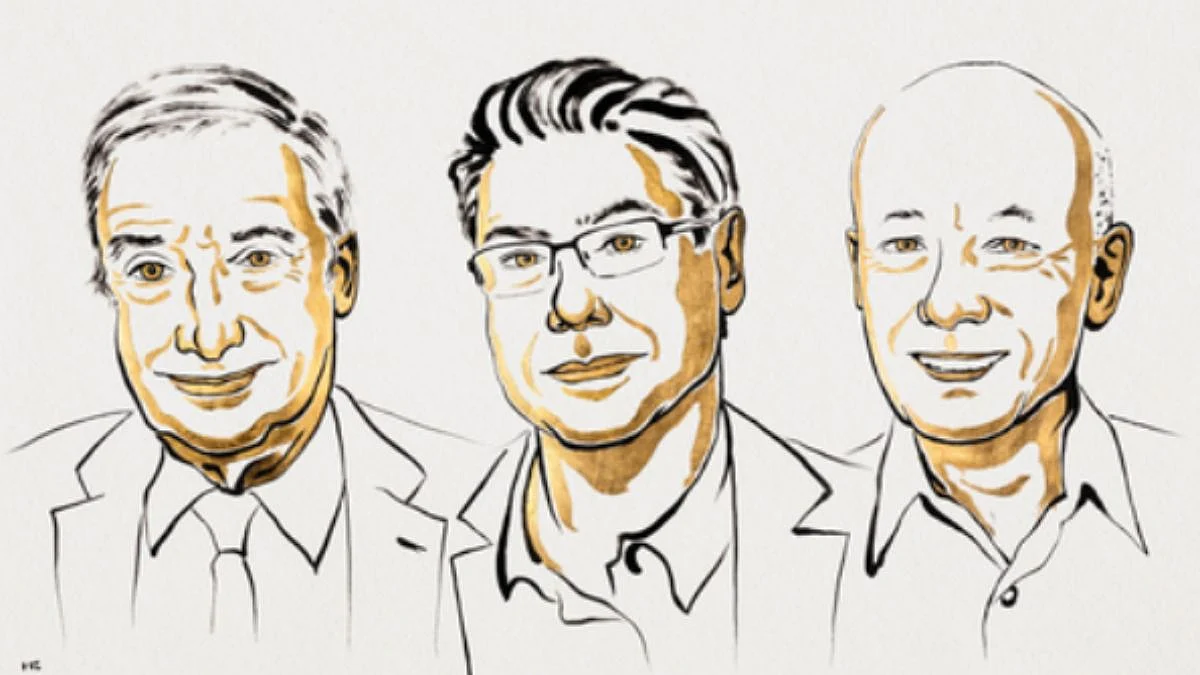Science
Mokyr, Aghion, and Howitt Awarded 2025 Nobel Prize in Economics

The 2025 Nobel Prize in Economic Sciences has been awarded to Joel Mokyr from Northwestern University, Philippe Aghion from College de France and INSEAD, and Peter Howitt from Brown University for their groundbreaking work on innovation-driven economic growth. The announcement was made on Monday by the Royal Swedish Academy of Sciences, which recognized Mokyr for identifying the prerequisites for sustained growth through technological advancement. Aghion and Howitt jointly received the other half of the prize for their development of the theory of sustained growth through creative destruction.
Understanding Innovation’s Role in Economic Growth
The Academy highlighted that over the past two centuries, the world has experienced unprecedented sustained economic growth, lifting millions out of poverty and forming the foundation of modern prosperity. The 2025 laureates elucidate how innovation serves as the crucial driver for ongoing progress. Mokyr’s research utilizes historical analysis to explore the factors that have made sustained growth a new norm.
He argues that for innovations to thrive in a self-perpetuating cycle, there is a need for scientific explanations to support new discoveries. Mokyr points out that prior to the Industrial Revolution, such explanations were often absent, hindering the ability to build on previous inventions. He emphasizes the necessity of a societal openness to new ideas and adaptability to change.
The Mechanics of Creative Destruction
Aghion and Howitt contribute to the discourse by examining the underlying mechanisms that drive sustained economic growth. Their seminal work, published in 1992, introduced a mathematical model for “creative destruction,” a process where outdated products are replaced by innovative offerings. This dynamic creates a competitive environment where established companies can be outperformed by those introducing superior technologies.
The laureates illustrate that managing the conflicts arising from creative destruction is essential. Without effective management, innovation can be stifled by established firms and interest groups seeking to protect their market positions. John Hassler, Chair of the Committee for the Prize in Economic Sciences, remarked, “The laureates’ work shows that economic growth cannot be taken for granted. We must uphold the mechanisms that underlie creative destruction, so that we do not fall back into stagnation.”
Last year, the Nobel Prize in Economic Sciences was awarded to three economists from the United States: Daron Acemoglu and Simon Johnson from the Massachusetts Institute of Technology (MIT), along with James A. Robinson from the University of Chicago. Their research focused on understanding the institutional factors that contribute to economic disparities between nations.
The 2025 Nobel Prize winners have significantly advanced our understanding of the intricate relationship between innovation and economic growth, highlighting the need for continual adaptation and openness to new ideas in the face of evolving market dynamics.
-

 World5 months ago
World5 months agoSBI Announces QIP Floor Price at ₹811.05 Per Share
-

 Lifestyle5 months ago
Lifestyle5 months agoCept Unveils ₹3.1 Crore Urban Mobility Plan for Sustainable Growth
-

 Science4 months ago
Science4 months agoNew Blood Group Discovered in South Indian Woman at Rotary Centre
-

 World5 months ago
World5 months agoTorrential Rains Cause Flash Flooding in New York and New Jersey
-

 Top Stories5 months ago
Top Stories5 months agoKonkani Cultural Organisation to Host Pearl Jubilee in Abu Dhabi
-

 Sports4 months ago
Sports4 months agoBroad Advocates for Bowling Change Ahead of Final Test Against India
-

 Science5 months ago
Science5 months agoNothing Headphone 1 Review: A Bold Contender in Audio Design
-

 Top Stories5 months ago
Top Stories5 months agoAir India Crash Investigation Highlights Boeing Fuel Switch Concerns
-

 Business5 months ago
Business5 months agoIndian Stock Market Rebounds: Sensex and Nifty Rise After Four-Day Decline
-

 Sports4 months ago
Sports4 months agoCristian Totti Retires at 19: Pressure of Fame Takes Toll
-

 Politics5 months ago
Politics5 months agoAbandoned Doberman Finds New Home After Journey to Prague
-

 Top Stories5 months ago
Top Stories5 months agoPatna Bank Manager Abhishek Varun Found Dead in Well









